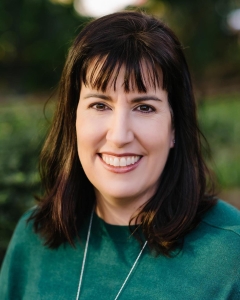couples & marriage therapy
All relationships – especially our romantic ones – experience conflict from time to time. Sometimes issues are easily worked through, and sometimes it takes an objective, third-party to help you understand what’s really going on and how to get through it.
Oftentimes the issues in a relationship are perpetual issues – they’re never going away. Instead, you and your partner have to figure out how to best manage these perpetual issues in a way that works for both of you – how to dance the dance that works for your relationship. If the dance you have been dancing doesn’t work anymore, it’s time to find a new dance.
Sometimes the issues we face in relationships are a result of stored-up irritability, frustration, and anger that we ultimately become resentful about. Relief and true connection can take place when both parties share their grievances, the origins of the grievances are better understood, and a new plan is put in place to manage these patterns of behavior when they begin to pop up again.
Oftentimes when people point the finger at their partner or spouse, wanting them to do something different, it’s the perfect platform for learning more about yourself. Why are you frustrated with the other’s behavior? What is that behavior bringing up for you? Does it remind you of something your mother, father, or sibling said or did when you were growing up? Grievances about another person is the perfect opportunity for exploring yourself and gaining deeper self-awareness.
Are you looking to End Your Relationship Well? Sometimes a person come to therapy already having made up their mind that it is time to end their relationship and they want to do that well. While we can’t determine how the other person will receive the information we offer them when ending a relationship, we can control our own non-verbal communication to help that difficult conversation can go as well as possible.
And let’s not forget all that is good in our relationships. Sometimes we focus solely on the negative aspects of our relationships because they hurt the most or make the most “noise”. What you feed, grows. When we shift our focus and start listing all the good things, we can put the not-so-good things into a better perspective.

Keith Williams, LMFT sees reaching out to make an improvement in your life is a significant decision. If you are burdened by something that is causing you or your family to suffer, seeking therapy to improve your situation can be a lot like making a decision to exercise in order to improve your health and well-being. In therapy, much like exercise, you push yourself, and this can result in emotional and physical pain. The lens we look through in this process can often determine success or failure before we even get started. Keith looks through the lens of therapy as serious work that requires a realistic expectation of immersing oneself in the process.
Feel free to schedule a FREE 10-minute consultation with Keith HERE! Or, if you’re ready to jump right in, you can schedule your first full appointment with him at your convenience HERE.
 Elizabeth McCormack, LMFT, believes finding the right therapist, who understands what you are going through, is essential to creating change. The right fit makes all the difference on the journey to feeling better–not just for you but for everyone in your family. Elizabeth embraces life with authenticity and humor, which her clients experience in her informal and relaxed style in my work.
Elizabeth McCormack, LMFT, believes finding the right therapist, who understands what you are going through, is essential to creating change. The right fit makes all the difference on the journey to feeling better–not just for you but for everyone in your family. Elizabeth embraces life with authenticity and humor, which her clients experience in her informal and relaxed style in my work.
Elizabeth partners with her clients to foster healing and wholeness. She helps them process traumas, work on life’s stressors, and confront conflict through cognitive behavioral education and mindfulness techniques. As an outside observer, I can help you discover and understand cognitive distortions – the places in life that aren’t quite matching up or feel confusing.
Want to know more? Feel free to schedule a FREE 10-minute consultation with Elizabeth HERE! Or, if you’re ready to jump right in, you can schedule your first full appointment with Elizabeth at your convenience HERE.




